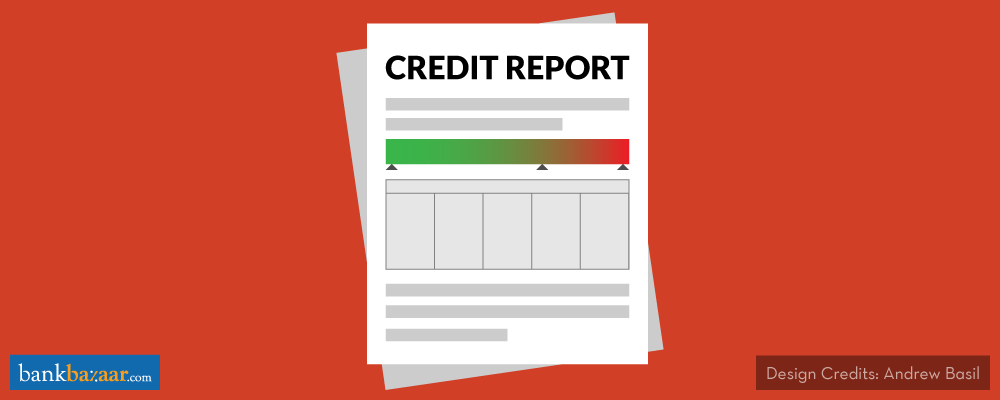
Credit information firms, such as the Credit Information Bureau Limited (CIBIL), store all relevant and updated information about all your financial activities, such as loan or Credit Card applications and approvals, payment history and defaults, etc. You may not know them, but they know your financial history very well. But that’s no reason to be wary of them. We’re going to tell you how your credit rating can impact your chances of getting a loan later on in life. Let’s start by telling you what CIBIL is.
What is CIBIL?
CIBIL is a Credit information agency that collects all credit-related information and provides it to banks as and when requested. If you avail of any type of credit from a financial institution or a bank then such activity is recorded with CIBIL. It then tracks your payment pattern, dues, overdue, settlements, loan closure, and everything related to your credit activity. Based on your financial activity, CIBIL grades your credit strength in terms of points between 0 to 1000. Anything below 600 points is considered as too a weak CIBIL score for a loan to be sanctioned, whereas a score above 750 points is considered to be a good score. If you are a young applicant who has never taken a loan or Credit Card before and are applying for a loan for the first time, then your credit history may not reflect in the Credit Report provided by CIBIL. Note that there are other credit information firms such as Experian and Equifax that also come out with their own Credit Report. Most of the time these Credit Reports reflect the same score.
Credit rating plays a vital role for career starters
When you’re younger, you have fewer financial responsibilities and a million reasons to spend. As a young person at the beginning of your career, you’re probably keen on keeping up with trends, whether it’s a vehicle, consumables, or lifestyle. It’s easy to think about taking a Personal Loan to fulfil these desires. Banks on their part are happy to cater to these requirements, as the risk factor is minimal. This is because a loan at this stage is usually the first one to be taken by the applicant and he/she has no other financial obligations. For many, this is the start of their financial journey.
This is where credit information companies, like CIBIL, enter the scene. They play an important role in tracking the history of loan repayments. Any delay or default in repayments at this early stage could have an adverse impact on the applicant’s future borrowing capacity. Indeed, at a young age, you may not be thinking about a Home Loan. It’s something that you’ll probably consider at a later stage in life. However, your credit history up to that point has a vital role to play in the sanctioning of big-ticket loans like a Home Loan.
How a negative Credit Score can hamper your future
A careless attitude towards financial liabilities, especially at a young age, may ruin your credit rating. While you may not suffer the adverse effects immediately, later on when you need any kind of loan, your bank will need a lot more convincing when it comes to your creditworthiness. If you were a defaulter in the past, it could have an adverse effect on your loan proposal despite your current high income and financial stability. At best, you might have to opt for a higher interest or a shorter tenure to get a loan. At worst, you could be ineligible for a loan. Now wouldn’t that be a shame?
You need to be careful!
If your Credit Score takes a hit at the start of your career, it could undermine your chances for future funding through loans from banks and financial institutions. So, make sure that you pay your Credit Cards bills and loan EMIs on time, to keep your repayment history stable and positive. You may choose to repay loans with extra charges or penalties if you have missed the payment date. However, remember that these late payments will reflect on your credit history.
Overdue loans, late payment of your EMIs, having multiple loans, repetitive loan applications, loan settlement with creditors and having a cheque bounce are some instances that can easily distress your Credit Score.
Do not take a loan to buy expensive goods unless you can really afford to repay it without disturbing your financial goals. Overemphasis on the borrowed funds might show that you are financially not sound, and therefore, credit hungry! So, plan your borrowing smartly. Keep in mind the steps to achieve financial discipline: first earn, then save as per your goal, and only then spend the money you are left with.
Additional reading: Financial Goals To Hit Before The Big Three-Oh!
Don’t worry
Don’t fear credit information companies like CIBIL. Inculcate discipline in your financial practices. Do not panic if you miss an EMI or a Credit Card bill payment. Simply work on being more disciplined by regularising your future payments. Do not make late payments a habit and keep an updated record of all your payment documents with you, especially when you have paid after the due date with late payment charges. If required, this documentation could help you to update your Credit Report in the future. A Credit Report is nothing but a reflection of your financial character. Keep it clean, clear, and creditworthy.